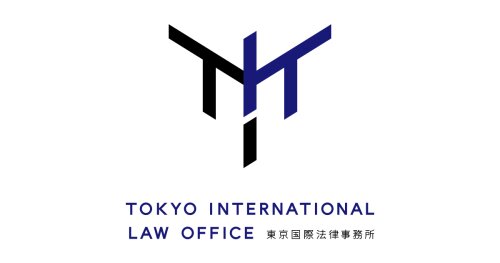Best Water Law Lawyers in Japan
Share your needs with us, get contacted by law firms.
Free. Takes 2 min.
Or refine your search by selecting a city:
List of the best lawyers in Japan
About Water Law in Japan
Water Law in Japan is a complex field that governs the use, management, conservation, and distribution of water resources throughout the country. With Japan’s dense population and limited freshwater resources, effective water governance is essential. Japanese Water Law includes national statutes, local ordinances, and a variety of regulations intended to ensure clean drinking water, protect waterways from pollution, allocate water usage, and manage water-related disasters like floods and droughts. The legal framework seeks to balance public interests, private rights, and environmental needs, often subject to evolving requirements due to climate change and population shifts.
Why You May Need a Lawyer
People commonly seek legal assistance in Water Law for several reasons. These include disputes over water rights or water usage between neighbors, businesses, or local governments; compliance with regulations concerning pollution or wastewater management; challenges related to water source development for agriculture or industry; or issues arising from public works such as dam or river construction projects. Legal professionals can also help navigate complex permit applications, environmental impact assessments, and compensation claims in case of water-related damages. In situations involving multiple parties or government agencies, or where significant property or business interests are at stake, a lawyer specializing in Water Law can help protect your rights and ensure compliance with all relevant laws.
Local Laws Overview
Japan’s Water Law system is comprised of various central and local pieces of legislation. The most important national laws include the Waterworks Act, which regulates public water supply systems; the River Law, governing river usage and management; and the Groundwater Law, which addresses the extraction and preservation of groundwater resources. Water pollution is managed under the Water Pollution Control Law, while flood control is covered by the Flood Control Act. Local governments may also enact ordinances to address region-specific issues, such as groundwater preservation or agricultural water allocations. All users must comply with permits, usage caps, and rules designed to protect the environment and public health. Violations can result in administrative or criminal penalties, as well as civil liability for damages.
Frequently Asked Questions
What is Water Law in Japan?
Water Law in Japan refers to the legal framework that regulates water usage, distribution, conservation, pollution control, and disaster management related to water bodies, ensuring sustainable and fair use of water resources.
Who owns water resources in Japan?
Most water resources, like rivers and lakes, are publicly owned and managed by the national or local governments. However, rights to use water for agricultural, industrial, or domestic purposes are allocated through licensing and permits.
Can individuals or businesses drill wells and use groundwater?
Drilling and using groundwater typically require permission from local authorities and must meet regulations under the Groundwater Law. Unauthorized use can result in penalties.
What legal protections are in place to prevent water pollution?
The Water Pollution Control Law sets standards and imposes fines for contaminating public or private water sources, with stricter requirements for businesses and factories.
What happens if a neighbor diverts water from a shared river or canal?
Disputes over water diversion are often resolved based on usage rights, and legal action can be taken if diversion exceeds permitted usage or causes harm to others.
Are there special rules for water use in agriculture?
Agricultural water use is subject to local allocations and permits, often managed by local cooperatives. Farmers must follow regulations to ensure fair distribution and conservation.
How can someone challenge a government decision about water rights or dam construction?
Affected individuals or groups can file administrative appeals or lawsuits, with the assistance of a lawyer, to challenge government decisions affecting water access or use.
What compensation is available for water-related damages such as flooding?
Compensation for water-related damages usually depends on the cause, such as government failure to maintain infrastructure. Legal advice is necessary to pursue claims.
Do foreign entities need special permits to use water in Japan?
Yes, foreign entities must comply with the same regulations and often require specific permits, especially for industrial or large-scale use.
Where can I report illegal water extraction or pollution?
Reports can be made to the local municipal office, the Waterworks Bureau, or environmental protection authorities. Prompt legal action may also be necessary in serious cases.
Additional Resources
- Ministry of Land, Infrastructure, Transport and Tourism (MLIT): Responsible for river management, flood control, and public works. - Ministry of the Environment: Oversees water quality, pollution control, and conservation efforts. - Local Waterworks Bureaus: Handle water supply management and consumer issues at the municipal level. - Japan Dam Foundation: Provides technical and legal information on dam management and related disputes. - Legal Support Centers (Houterasu): Offer free or low-cost legal consultations, including for water law issues in Japan.
Next Steps
If you need legal assistance relating to Water Law in Japan, start by gathering all relevant documents, such as permits, correspondence, and evidence of water use or impact. Consult with a lawyer who has experience in Water Law or environmental regulations in your locality. Consider approaching a Legal Support Center if you are unsure about the process or concerned about legal costs. Timely legal advice can help you understand your rights, comply with regulations, resolve disputes, and take effective action in case of damages or violations.
Lawzana helps you find the best lawyers and law firms in Japan through a curated and pre-screened list of qualified legal professionals. Our platform offers rankings and detailed profiles of attorneys and law firms, allowing you to compare based on practice areas, including Water Law, experience, and client feedback.
Each profile includes a description of the firm's areas of practice, client reviews, team members and partners, year of establishment, spoken languages, office locations, contact information, social media presence, and any published articles or resources. Most firms on our platform speak English and are experienced in both local and international legal matters.
Get a quote from top-rated law firms in Japan — quickly, securely, and without unnecessary hassle.
Disclaimer:
The information provided on this page is for general informational purposes only and does not constitute legal advice. While we strive to ensure the accuracy and relevance of the content, legal information may change over time, and interpretations of the law can vary. You should always consult with a qualified legal professional for advice specific to your situation.
We disclaim all liability for actions taken or not taken based on the content of this page. If you believe any information is incorrect or outdated, please contact us, and we will review and update it where appropriate.
Browse water law law firms by city in Japan
Refine your search by selecting a city.

















